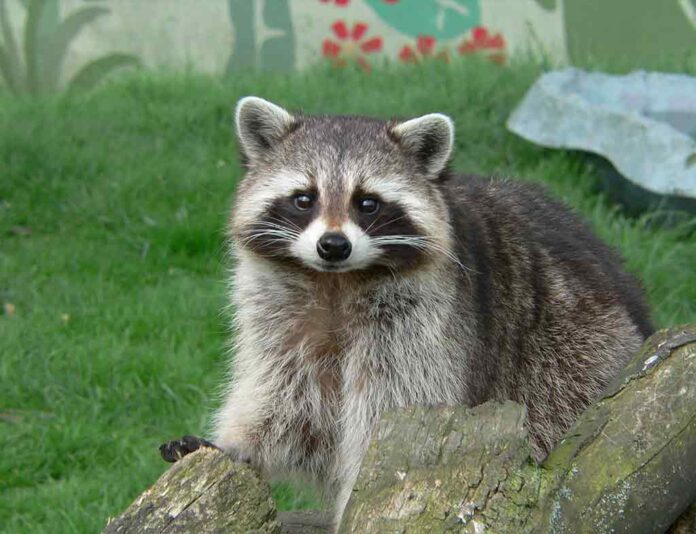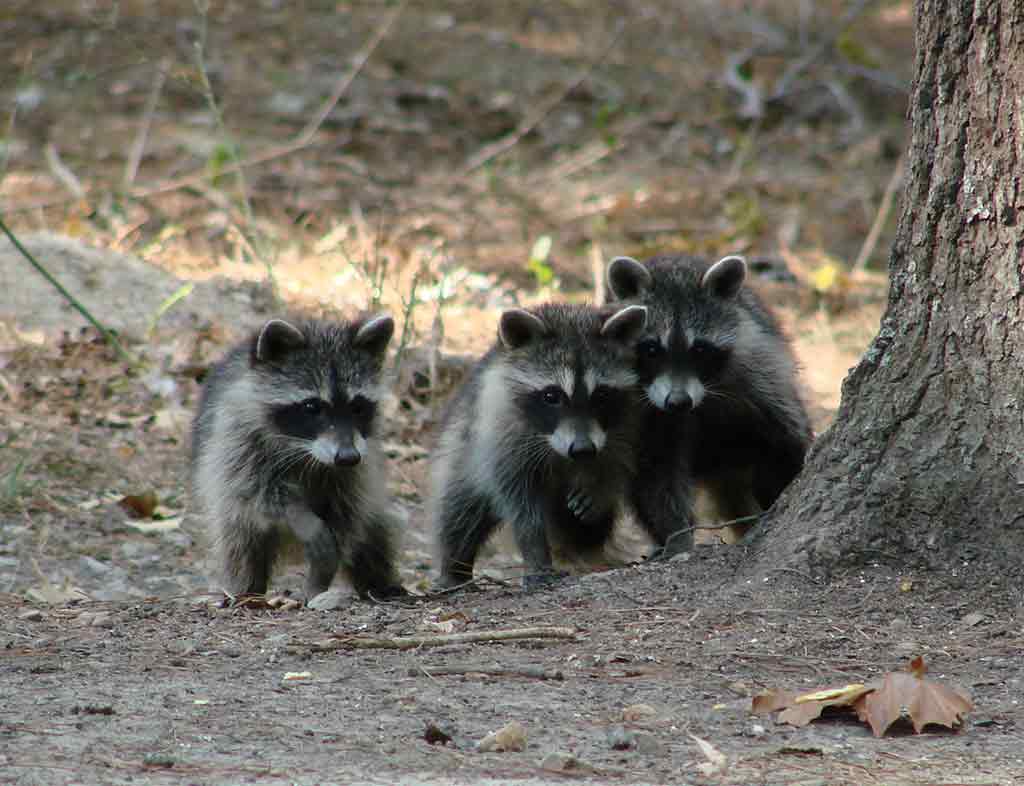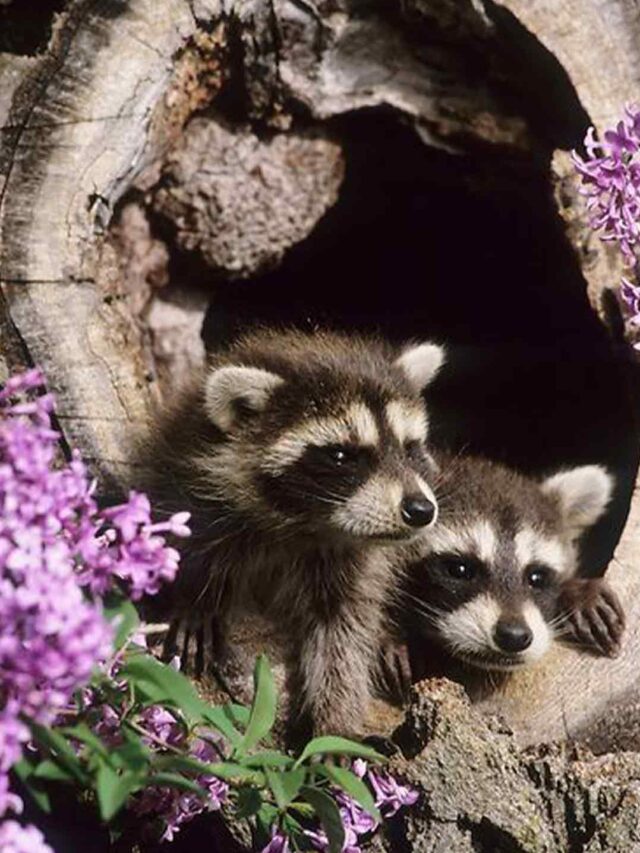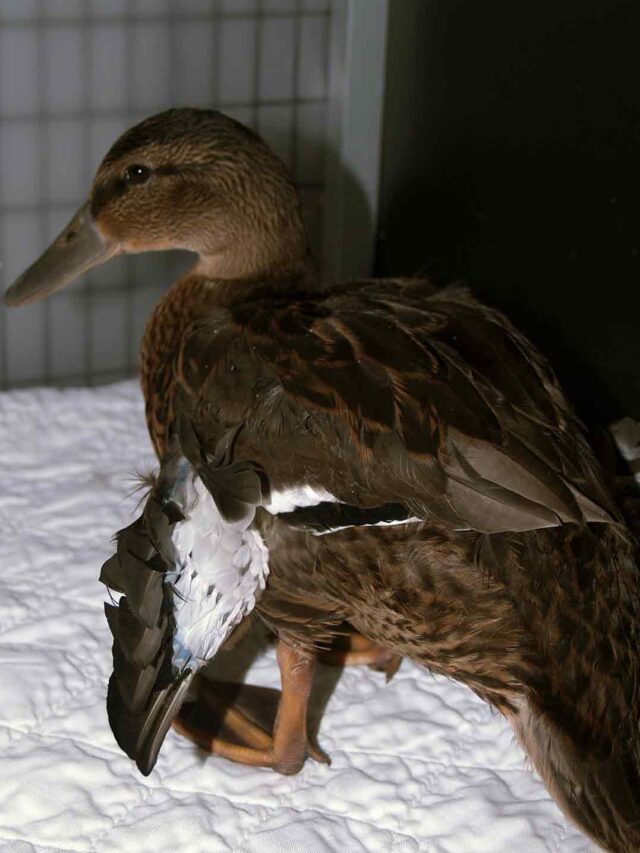
North American Raccoons wildlife, one creature stands out for its cunning and adaptability – the raccoon. With its distinctive mask-like facial markings and ringed tail, the raccoon has captured the imagination of people around the world. In this comprehensive guide, we delve into the fascinating world of North American raccoons, often referred to as “masked bandits.”
Table of Contents
The Intriguing Behavior of Raccoons
Raccoons are highly intelligent and resourceful animals known for their nocturnal habits. They are adept climbers and skilled foragers, with a diverse diet that includes fruits, nuts, insects, small mammals, and even garbage. Their dexterous front paws enable them to manipulate objects with ease, making them formidable hunters and scavengers.
Nocturnal Habits of North American Raccoons
Raccoons are primarily nocturnal creatures, meaning they are most active during the night. This nocturnal behaviour allows them to avoid predators and compete for food resources more effectively. Despite their preference for the cover of darkness, raccoons can also be spotted during the daytime, especially in urban areas where they have become accustomed to human presence.
Social Structure
While raccoons are often solitary animals, they may form loose-knit groups known as “nurseries” during the breeding season. Female raccoons, or sows, raise their young in dens, usually located in tree hollows, rock crevices, or human-made structures such as attics and chimneys. Male raccoons, or boars, typically have larger home ranges and may travel significant distances in search of food and mates.
Habitat and Distribution
Raccoons are highly adaptable animals found throughout North America, from Canada to Panama. They inhabit a wide range of ecosystems, including forests, wetlands, urban areas, and suburban neighbourhoods. Their ability to thrive in diverse habitats has contributed to their widespread distribution and success as a species.
Urban Adaptations
In recent decades, raccoons have become increasingly common in urban and suburban environments. They are drawn to these areas by the abundance of food sources, including garbage cans, pet food, and bird feeders. Despite their reputation as pests, raccoons play a vital role in urban ecosystems by controlling insect populations and scavenging organic waste.
Conservation Status
While North American Raccoons are not currently listed as endangered, they face numerous threats in the wild, including habitat loss, road accidents, and disease. Conservation efforts focus on preserving and restoring natural habitats, reducing human-wildlife conflicts, and raising awareness about the importance of coexisting with native wildlife.
Human-Wildlife Conflict
Raccoons are known for their opportunistic behavior and ability to adapt to human-dominated landscapes. While they provide valuable ecological services, such as controlling insect pests and dispersing seeds, they can also cause property damage and transmit diseases to domestic animals. Effective management strategies aim to mitigate conflicts between raccoons and humans while promoting coexistence.

Wildlife Rehabilitation in the United States
Raccoon
FAQs About North American Raccoons: Masked Bandits
Q: Are raccoons dangerous to humans?
A: While raccoons are not typically aggressive towards humans, they may defend themselves if cornered or threatened. It is essential to avoid approaching or feeding wild raccoons to prevent potential conflicts.
Q: How can I deter raccoons from my property?
A: To discourage raccoons from entering your property, secure garbage cans, remove potential food sources such as pet food and bird feeders, and seal off entry points to your home, such as gaps in attics and chimneys
Q: Do raccoons carry diseases?
A: Yes, raccoons can carry diseases such as rabies, distemper, and leptospirosis. It is essential to avoid contact with wild raccoons and ensure that pets are vaccinated against rabies.
Q: What should I do if I encounter a raccoon in my yard?
A: If you encounter a raccoon in your yard, keep your distance and avoid approaching the animal. If the raccoon appears sick or injured, contact local wildlife authorities for assistance.
Q: Can raccoons be kept as pets?
A: In many jurisdictions, it is illegal to keep raccoons as pets due to their status as wild animals. Attempting to domesticate raccoons can pose risks to both the animal and human health.
Q: How can I help conserve raccoon populations?
A: You can support raccoon conservation efforts by respecting wildlife habitats, avoiding the use of pesticides and rodenticides, and advocating for policies that protect natural ecosystems.












